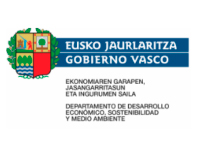4 Benefits of Corporate Open Innovation with Tech Startups
Open Innovation is relying on both internal and external ideas for various forms of not only advancing technology, improving processes and reducing costs, but finding opportunities to decrease energy consumption and reduce waste. Focusing on the internal innovation of all products and processes plus the need for rapid implementation of new solutions is expensive and time consuming. Rather than concentrating all the innovation efforts in the internal R&D, organizations can leverage the creativity and knowledge of both internal and external teams through Open Innovation and innovative projects with solutions developed by startups. This way the R&D department combines their expertise with that of external teams when implementing POC and innovation projects.
Even big companies fail (for example: Nokia, Enron, Kodak) without proper foresight, timing and implementation. Companies like Netflix and Amazon have stayed successful by evolving their business models or advancing technology and innovation in their industries. Successful organizations shift and evolve, they rely on both internal knowledge and external insight to anticipate & respond to the needs of the marketplace.
Moving fast to stay relevant? Startups can help with that.
Large corporations and SMEs can’t always innovate as quickly as they need to in all areas of business and production if relying solely on their internal teams. The inherent nature of Startups to be fast moving and highly specialized, offers a great opportunity for organizations to take advantage of the startups’ expertise and flexibility via Open Innovation projects.
What are the Benefits of Open Innovation with Startups?
In recent years, the benefits of hiring outside specialists for very targeted solutions have become more clear. Startup teams allow organizations of all sizes to test, develop and/or implement new technologies because of their size, capability and agility.
4 Benefits of Open Innovation for SMEs and Corporates
- Reduced risk, by testing or developing solutions hand in hand with startups
- Fast development, startups can move and adapt quickly
- Specialization in niche areas, startups are experts in their field
- Reduce costs of R&D & Innovation, jump to testing and implementation
Additionally, by contracting Startups, organizations gain significant benefits because of their potential to reduce costs by improving productivity, get exposure to new business models and increase sales by discovering new opportunities for growth.
The benefits of outsourcing on a project-based basis are the reason the Open Innovation business model has become essential for companies looking to stay competitive and on the leading edge.
Leading Companies Who Value Open Innovation
With the trust and support of 100 Corporate Clients based in the Basque Country, the BIND 4.0 Platform has helped boost innovation and competitiveness in the Basque Advanced Industrial & Entrepreneurial Ecosystem since 2016.
Industry leaders across verticals partner with BIND 4.0 each year as Corporate Venture Clients, looking for startups with disruptive Industry 4.0 solutions. 100 Companies like Mercedes Benz, BATZ, Bridgestone, Michelin, CAF, Siemens Gamesa, Iberdrola, Maier Group, Coca-Cola European Partners, Unilever, Uvesco, Tubacex, Sidenor, Sarralle, IMQ, Faes Farma and Quirónsalud among others, have chosen to partner with BIND 4.0 to support their innovation strategies. So far, the BIND 4.0 Platform has facilitated the development of over 240 Open Innovation pilot projects that have reduced costs and energy consumption, advanced technology and improved processes for companies within the local business ecosystem.
BIND 4.0 is the leading Open Innovation Platform for attracting Startups with disruptive Industry 4.0 technologies and connecting them with Industry leaders who are ready to collaborate. Visit the BIND 4.0 Success Stories page for insight into the +290 Open Innovation projects, impacting the Intelligent Industry, Clean Energy & Sustainability, Health Tech and Food Tech sectors.














